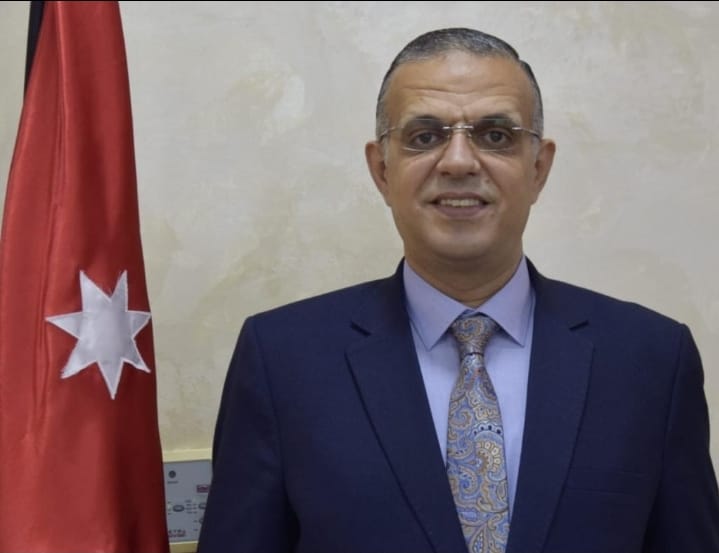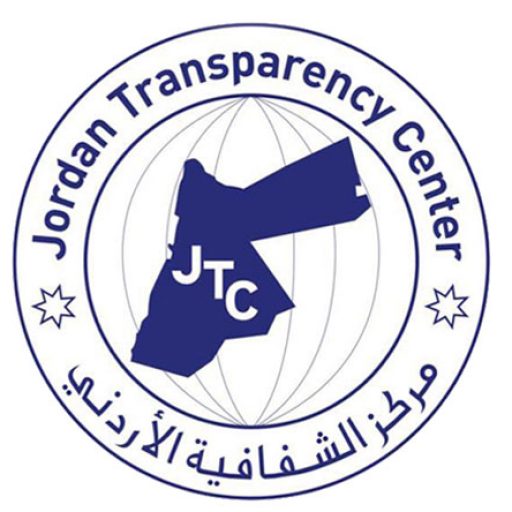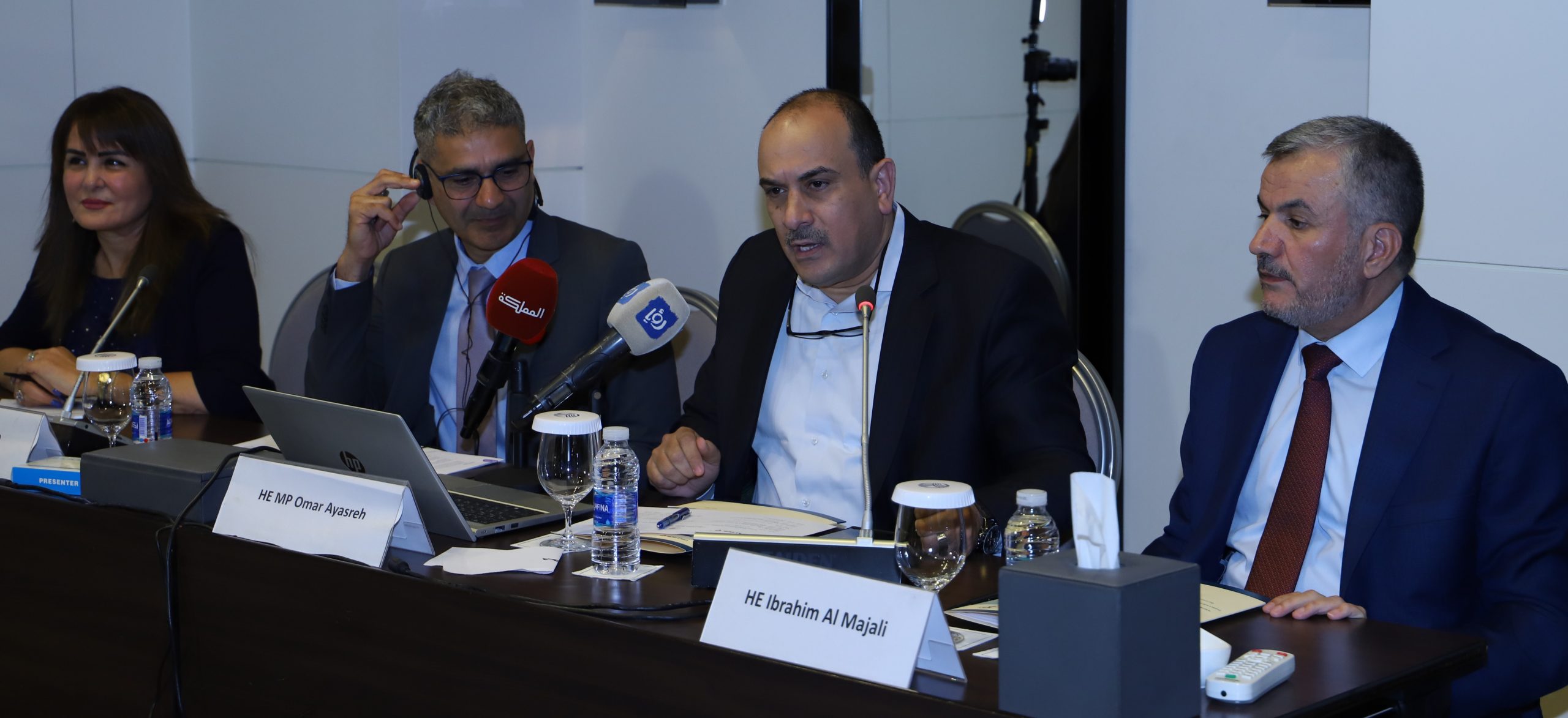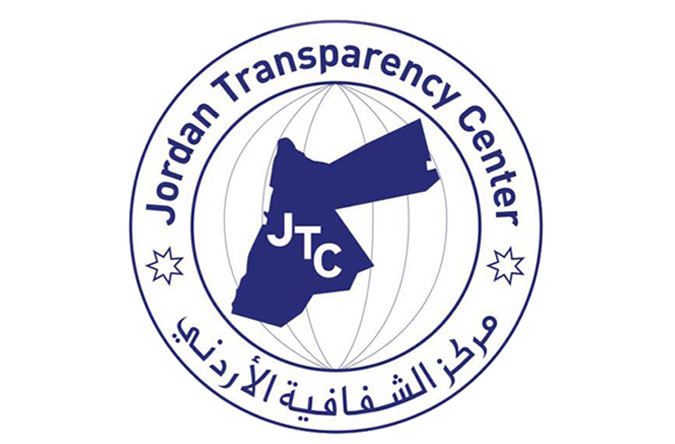The Jordanian Transparency Center held a dialogue meeting via Zoom with Dr. Barq Al-Damour, Secretary General of the Ministry of Social Development, as part of the series of weekly meetings between the Transparency Knights and various state officials to talk about topical issues, and to learn about the procedures and challenges that have faced the ministries in light of the Coronavirus pandemic and the role of youth in handling this crisis.
At the beginning of the meeting, Al-Damour expressed his happiness that JTC is sheding light on the work of the Ministry of Social Development, and its early efforts to respond to the coronavirus crisis in three stages. The first stage is the immediate response to the crisis, the second is adaptation and solidarity with the groups affected by the crisis, and the last stage is recovery and immunity.
The first stage consisted of taking preventive and precautionary measures in Ministry-affiliated care homes for the elderly, orphans, and persons with disabilities. These measures included sterilizing the centers, conducting check-ins with all beneficiaries and workers supervising the beneficiaries, and restricting visits to limit the transmission of infection and disease. All new beneficiaries entering the centers were isolated and examined until it was certain they were not sick.
In the second phase, the Prime Minister formed a social protection team headed by the Minister of Social Development. This committee was tasked with coordinating material assistance for those affected by the crisis. Al-Damour confirmed that the volume of individuals affected exceeded expectations because the ministry was now concerned with a new category of individuals affected by the crisis: day laborers.
With regard to the last stage, he confirmed that the Ministry was working with the minimum number of employees to distribute relief parcels to affected families and nursing homes so as to reduce the risk of transmitting disease to the beneficiaries of services. He explained the ministry’s intention to gradually return to work between 5/26/2020 and 1/7/2020 in several stages, starting with 30%, then 50%, and then finally with all ministry sectors returning to work.
The Transparency Knights then asked a number of questions regarding the work of the Ministry of Social Development under these exceptional circumstances. Knight Omar Shehab started by asking about purported efforts to establish a national data bank between the ministry and civil society organizations. The ministry responded to the circulating talk that there is still a large number of day laborers who have not received support, so it would be difficult to deal with those individuals on the platform.
Al-Damour emphasized that the National Aid Fund has a national register that contains information on one million six hundred thousand families of applicants for the various National Aid Fund programs, and many new applicants who are daily workers from irregular sectors and do not participate in social security programs. He added that there are many agencies that have benefited from these records and that they are available in the case that any of the other sectors need them. As for the daily workers, program updates have have been made so as to reach people who really need assistance, and among these updates is a rule ensuring that aid is prioritized for families whose income does not exceed 350 dinars per month, in order to ensure aid is given to the poorest families in the various governorates of the Kingdom. For reference, research shows that during the pandemic the number of families with income less than 200 dinars per month was 200,000.
The Secretary-General explained that despite these conditions, it was found that they had a large number of applicants through the platforms whose family income exceeds 2000 dinars per month, which led to difficulties in the sorting of families who are actually in need of aid. An additional difficulty was the frequent misuse of the complaints portal.
Dr. Dina asked about the mechanism of parcel distribution and whether the Ministry had a hand in coordinating the process. She touched on the images circulated on social media platforms that showed the poor quality of the products that were distributed to needy families. She brought into question who was responsible for providing the parcel and whether its components were being held to decent quality standards.
Al-Damour stated that each parcel contains components valued at no less than 25 dinars and most of the photos that were circulated were of items that were not managed by the protection team. He explained that though it was unfortunate that some of the items were lacking in quality, these items were only a small number of the items distributed. Basically, the parcels were approved at the beginning of the crisis because of restrictions limiting access to many essential items, but later the assistance program shifted towards the distribution of shopping coupons so that each family could buy items to satisfy their individual needs.
Haya Shaaban, one of the Transparency Knights asked about the existence of a strategy or future plans to deal with the new category of impacted individuals after the end of the crisis, and if there are any programs or initiatives that allow young people to volunteer and assist the Ministry of Social Development through the crisis.
And the Secretary-General’s response was that there are no programs or plans for the new category of impacted individuals because it is considered a temporary category, only taken into consideration because of the pandemic. Once the crisis ends, they can return to their work as usual, and in the event that the financial conditions of some continue to deteriorate, they will be dealt with through the Ministry’s regular programs, such as programs to enhance productivity and health insurance. As for youth initiatives, the Ministry of Youth has organized several initiatives for this purpose, and these have helped in the process of distributing parcels in some regions of the Kingdom.
Fares Amin Freihat asked whether there is a role for civil society organizations in the oversight process with the ministry.
Al-Damour replied that the work of the protection team is subject to oversight by various partners and that an oversight system within the ministry was formed under the leadership of the former minister, Reem Abu Hassan. The beneficiaries are studied very carefully to ensure resources reach deserving ones.
Hilda Ajeilat concluded the meeting by asking about the lessons learned from this crisis, and advice to young people for the future, especially as we are on the verge of a major economic crisis.
In turn, his excellency stressed the necessity of activating virtual services to achieve social distance, whether in the presence of the crisis or not, and to automate procedures and facilitate system digitization to reduce the number of papers circulated between departments. However, accountability is paramount, and he added that he expects the organizational structure of the Ministry of Development to change so as to provide the largest number of services with the least number of employees (to combat administrative sluggishness).
Al-Damour concluded his speech by expressing his pride that youth had such an extensive level of awareness and knowledge about the activities, events, and programs of the Ministry. He stated: “And my message to you is that we try to support all sectors in the country, stay away from spreading rumors, and verify the authenticity of news before publishing it.”
In our role, as Knights of Transparency, we are grateful and proud of the efforts of the Ministry of Social Development in providing assistance to the elderly, people with special needs, and families, and support for supporting daily workers and others affected by the crisis.
.




